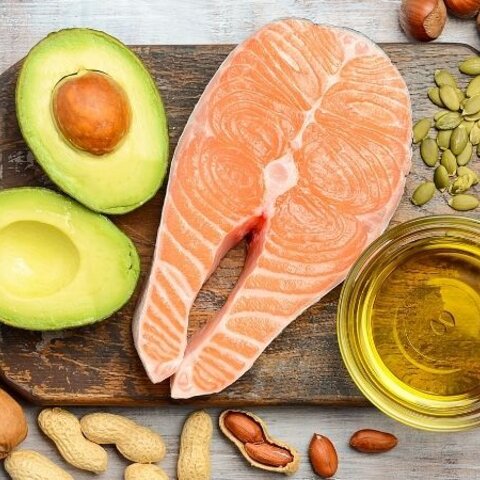
Seed oils come from the seeds of plants. Some common types are canola oil, corn oil, soybean oil, grapeseed oil, peanut oil, and sunflower oil. These oils are often used in cooking and baking because they have a high smoke point, meaning they don’t burn as easily as other fats. They can also be a substitute for solid fats like animal fats (butter, tallow, lard) or shortening, which are high in saturated fat.
Seed oils contain omega-6 polyunsaturated fats, which help lower LDL (bad) cholesterol, lower total cholesterol, and protect against heart disease. They also help build cell membranes and support brain function.
People compare omega-6s to omega-3s, another type of polyunsaturated fat found in fatty fish, walnuts, chia seeds, and flaxseeds. Omega-3s are also essential for brain and heart health, and many people fall short in getting enough of them. A balanced intake of both omega-6 and omega-3 fats is important for overall health.
To extract pure oil from seeds, manufacturers use high heat and a solvent. Without this process, the oils can become cloudy or spoil quickly. The Food and Drug Administration says this process does not pose a hazard to the public.
The real issue with seed oils isn’t the oils themselves, but in the processed foods that commonly contain them. Many ultra-processed foods, like chips, baked goods, and frozen meals, contain seed oils along with high amounts of sugar, saturated fat, and sodium. Additionally, fast food companies use omega-6s in frying. Eating too many of these foods can lead to health problems.
Good nutrition isn’t just about what kind of oil you use – it’s about the overall quality of your meals. Focus on eating a balanced diet with a mix of nuts, seeds, fruits, vegetables, lean meats, and whole grains to decrease your risk of chronic disease.
Sources:
Rethink Fats, United States Department of Agriculture (USDA)
Bell, Serena, Understanding Seed Oils, Academy of Nutrition and Dietetics
Williamson, Laura, There's no reason to avoid seed oils and plenty of reasons to eat them, American Heart Association
Food Chemical Safety, Food and Drug Administration (FDA)
This article was written in 2025 by Hannah Harrison, Professional Student of Dietetics, University of Nebraska Medical Center. It was reviewed by Cindy Brison, Marusa Jonas, Nancy Urbanec, and Cami Wells.
Tags:





